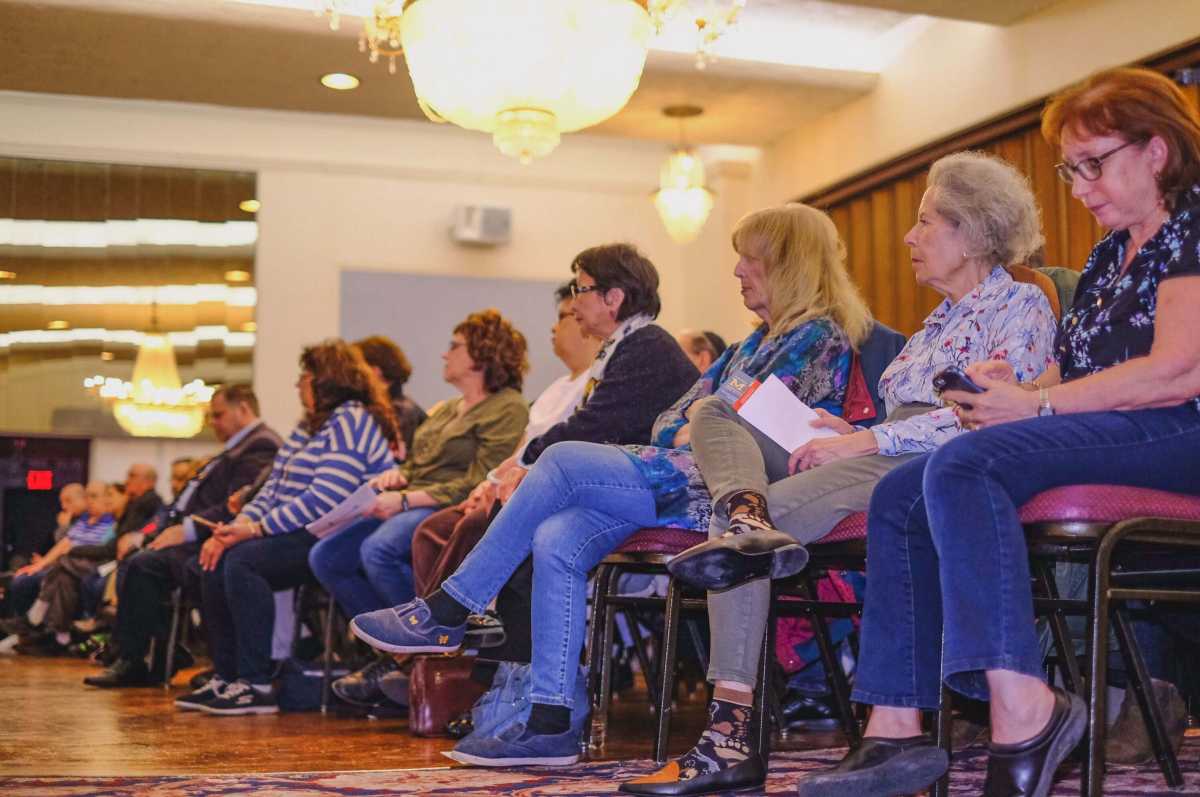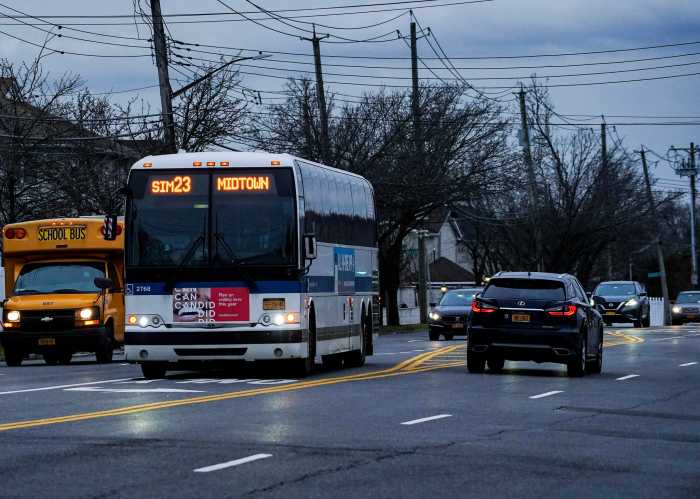Progressive candidates for Queens District Attorney were met with only scattered support from an audience at Hillcrest’s Israel Center for Conservative Judaism on Monday night.
The same crowd often held their applause for retired state Supreme Court Judge Gregory Lasak when he pitched his approval for keep those in city detention on Rikers Island and said he would not support a bill that made convicts eligible for parole after the age of 55.
“The violence on Rikers Island must be dealt with. We do not need to bring that violent facility into our neighborhoods,” Lasak said to cheers and applause. “We can rebuild Rikers Island on Rikers Island … [the de Blasio administration’s proposed facilities] being close to your family, your lawyer, that went out the window when they changed the plan and they said all the women are going to be in Queens … That puts a lie to that.”
Prosecutor Betty Lugo also slammed the city’s plan to move detainees into the boroughs by claiming that since there is a bus route to Rikers Island, it is not as isolated as advocates have claimed.
“Most of the attorneys are legal aid attorneys that represent the people that are in Rikers … There’s a bus route to Rikers so nobody is being denied due process. The people who are being denied due process are the people – you – who live in the community,” Lugo said. “If they’re going to put a jail in your backyard you need to stand up and object and fight and I will fight along with you.”
Mina Malik put the question of city detention facilities back toward the audience by claiming the office of the district attorney has no authority over where and how the city places jails.
“Rikers Island isn’t a place where I would want any family member of mine or family member of yours to end up and something needs to be done about it,” Malik said. “But, unfortunately, as district attorney, we don’t have any say as to where Rikers Island goes. That’s up to the mayor. So if you don’t want a Rikers or new borough-based jail in Kew Gardens, you have to speak up.”
A question in regard to a bill by Assemblyman David Weprin which would make people serving life without parole eligible to go before the parole board if they are over the age of 55 and having served 15 years of their sentence became a heated discussion.
The bill states an individual would fall under this consideration if “he or she will live and remain at liberty without violating the law and that his or her release is not incompatible with the welfare of society.”
Bob Friedrich, the president of Glen Oaks Village, put pressure on the candidates asking if they would support the bill only if there was an amendment that would exclude violent offenders. Freidrich referred to the NYS Parole Board as “notoriously lenient.”
“I would consider that revision, because I believe that when you’re dealing with violent offenses, one of the issues you must consider as a government body is public safety,” Jose Nieves said. “If the individual poses a threat to public safety, [the parole board] is going to have take a very strong look as to whether that person should be released into the public … But I do believe [the bill] is the right approach.”
Tiffany Cabán said she would be opposed to the amendment proposed by Friedrich, arguing that there are some offenses such as stealing packages that have been delivered to homes fall under the same misdemeanor category as many violent crimes.
“My point is that we can’t look at legislation and say ‘blanket … all violent offenses’ because not all violent offenses that are in the law involve any kind of violent behavior,” Cabán said. “We need to look at this nuanced from situation to situation.”
Councilman Rory Lancman disagreed that the state Parole Board was in any way lenient but said it is a process that allows the victims’ families, victims and prosecutors to also make the case for or against release.
“If you support the bill and you support the idea, you have to recognize that it will include people who have been convicted of violent offenses,” Lancman said. “This is not letting people out of jail automatically; it just gives them the chance to make their case to a parole board. Those involved with the criminal justice system would not confuse New York’s Parole Board with a lenient parole board.”
Lasak made the argument that he did not believe anyone serving time in a penitentiary upstate is convicted of a non-violent crime and that he would not support the bill because a person of 55 is still “very strong and virile,” to which he received much applause.

































